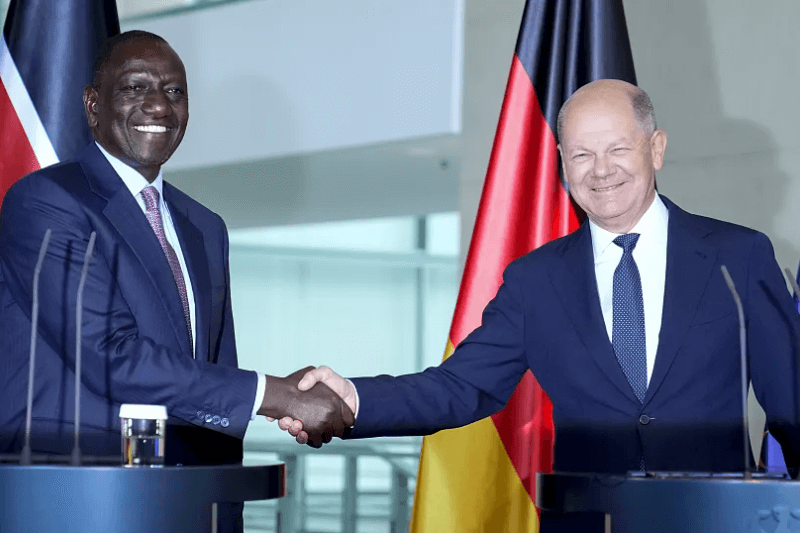German and Kenyan officials signed an agreement that the skilled workers from Kenya would make up for the shortfall of labor in Germany, while the repatriation of those Kenyans who have no residency rights there would be facilitated. The agreement signed by German and Kenyan officials aimed to address labor shortages in Germany during a visit to Berlin by Kenyan President William Ruto, where he met German Chancellor Olaf Scholz.
The agreement is important, Chancellor Scholz said, describing it as a big step toward ensuring cooperation on migration between Germany and Kenya. Skilled labor is in dire need for Germany, the problem that has put the country in a dilemma for some years now, because of the grey population. According to experts’ estimates, the country needs about 400,000 skilled immigrants every year.
“This may enable us to balance a lack of skilled labor,” Scholz said, and conceded that the labor shortage would likely be long-term. In return, the treaty provides for facilitated return procedures for Kenyans who do not have or cannot obtain the right to stay in Germany, meaning they could return to Kenya with more ease.
President Ruto said this in praise of the agreement, as one that leverages Kenya’s educated youths and Germany’s technological resources for mutual benefit. He frowned at what might have been considered an objection to a potential brain drain, pointing to the country’s median age of about 20 years, which is very young and able to support development in both countries.
Scholz also explained that Germany would greatly benefit from the arrival of Kenyan IT professionals. The treaty has been the latest of a series Germany has signed with India, Georgia, and Morocco, with a planned one with Uzbekistan in the pipeline as part of Scholz’s current efforts.
Keep Reading
The deal was signed in a ceremony in Berlin by German Interior Minister Nancy Faeser and Kenyan Prime Cabinet Secretary Musalia Mudavadi, in the presence of both Scholz and Ruto.
This move comes amidst a difficult political climate in Germany, with its government under pressure from the far-right anti-immigration party Alternative for Germany, AfD, which has just gained ground in state elections.

